Start working on things that might be new for you, might be difficult for you. Help people selflessly. My professor had helped me find a job during my initial days in US. And a time came where I could help him find a good job. I feel ‘Networking for achieving nothing’ is very important. Life is always revolving around human connections and human stories.
Q : This journey is of the past decade or so.. Is so good to hear.. When you tell it, it can give a feeling – “how nice, he had a farm, built a track.. had a cattle camp land, built a swimming pool there” But this work surely isn’t as easy as it sounds.. I have witnessed the cattle camp myself. I think you might have come across two types of hurdles.. One – people don’t want to give money for ‘just playing’, so financial challenges must be there.. also, these girls were daily wage labourers.. wage earners for their families. They did household chores, worked on farms, earned money, took care of their siblings.. when were they going to find time to play… I am sure their families and communities must have resisted… How did you face all these challenges?
A : I faced most hurdles from the families of the girls. The parents were curious about what I would give them in return for sending their daughters to play. A recent example – I was invited for Flag Hoisting on 26th January (Republic Day). There was a girl on the road outside. Her eyes were bluish-greenish-grey. Must be about 12 years old. She was barefoot. Was shivering in the cold. I was saluting the flag when I saw her. She was standing outside the gate with flags in her hand. I realised that she was from the Paradhi community. She did not come inside as there was a security guard at the gate. He had not stopped her, but she must have decided for herself that she is not welcome inside. How did she decide this? She looked at the security guard and he looked back at her. That’s it!! It's no fault of his. Whenever anyone holds a position in India, the first right he gets is to say ‘no’! I went to her and asked her name. She told me. I asked her brother’s name, and she said ‘tempo’. ‘Why?’ ‘ coz he was born in a tempo’. I asked her where she is from. She said “I don’t belong here.. I am a Paradhi” Then I asked her “ What do we do on 26th January?” She replied “ Sell Flags”. Then I asked, “What is the name of your country?” She said “ Paradhi”. The Paradhi community is known as the community of thieves. We have yet not assimilated them in the system. I wanted to turn these kids to sports, and how to do that was a very big question because these kids run their households.
I went to the parents of the girl, requested them to send her to play for at least a couple of hours and promised to give her chicken and eggs everyday. Then all the children from her hamlet started coming to us for chicken and eggs. This situation hasn’t changed since 2013.
Kajal, who plays for India today, had also come to us for eggs and bananas. Even today kids come with the same hope.
The Paradhi community is a nomadic tribe. The Dhangar community is also the same. These kids also travel with their families and leave school. As a solution, we started giving jobs to people from Paradhi community. The obvious question that comes to mind is what would the Pardhi community people teach? They are very flexible and strong. They can walk on tightropes. We have a ‘Travel Coach Programme’, under which these Paridhi men and women wear Mann Deshi Champions Jackets with ‘Coach’ written on them and teach kids to walk on ropes. We pay them a salary for it. This way, we brought the parents into the system and then enrolled their kids into schools. But those kids did not have birth certificates, Aadhar cards, etc. We got those made. Getting Aadhar cards issued for 10 kids took six months! Mr. Shekhar Singh, Collector, Satara District helped us in this. Until now, we have been able to get 50 kids their Aadhar cards, enroll them in schools, and give them school bags and kits. This should sustain. It is important that their parents are settled too. Giving food to the kids and creating awareness among parents is something that we continue doing.
We conduct a parent’s meeting once a month. 300 to 400 parents attend it. Because now they have seen examples like Kajal or Maharashtra field hockey team captain, Sarita. They look at our students - Kajal, Sarita, Reshma, Vaishnavi – as role models. Now parents themselves send the kids. We have buses which pick up and drop off the kids.
Currently we are also working on reproductive health. We train school teachers in that too. We have trained around 800 teachers in Sports and Women’s Reproductive Health from the states of Maharashtra, Chhattisgarh and Assam. It is not enough to think that we need to groom Olympians. When will that be possible? It will be possible only when more and more kids get into sports. So, it is no use if we work only on 10 players and give them training in America. To create more Olympians, we need specialised sports educators right from Primary grades. Government schools do not have such specifically appointed Sports teachers, thus, we ourselves conduct certificate courses and train teachers who are themselves keen about sports.
Today, we are working with more than 10,000 athletes. 10 – 12 of our plays are in the National teams. More than 80 players are playing for the state. A lot of organisations provide us with financial help. They give us money to run the programmes. But, we need money also for infrastructure. For eg. We do not have a synthetic track and we do not get money to build one. Our Floating Basketball Stadium and Swimming pool run entirely on Solar energy. We do not get funding for building and upkeep of these facilities. We need to try more for these. Funders usually want to know how many of our players will be participating in the Olympics or whether the athletes will be wearing their logos on T-shirts. They want Olympians, but do not want to spend on facilities.. It’s a major hurdle.
Q : How has your experience with the Government been? Grooming athletes is the job of the Government. Do you get any help from them?
A : Government spends around 7 crore rupees and builds a stadium in every district. But Mhasvad is 2 – 3 hours away from the district place of Satara. So, how do the players here go there to play? As a solution, we tie up with the government. As I mentioned before, we train the Government school teachers. We conduct sports competitions from Zilla Parishad schools of Satara, Sangli, Solapur and Kolhapur on our grounds. We do not bother much about Government funding. I feel that for sports, the government model should be like that in Haryana. Every village there has a boxing ring (sports complex). The village maintains it. Sports field cannot be written as the responsibility of the Government alone. If a village builds a facility, however small, can make a huge difference. That will be very helpful.
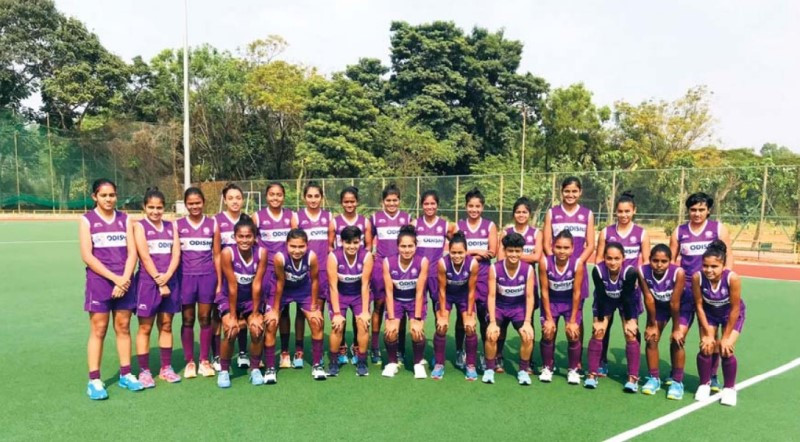 Rural areas do not have toilets for women. So, as soon as girls hit puberty, they drop out of schools and also sports. To raise awareness about this, we tied up with an organisation in Delhi and organised a 5 km run in the shape of a sanitary napkin. 600 girls participated in it. We purchased reusable sanitary napkins from that organisation and distributed it among girls.
Rural areas do not have toilets for women. So, as soon as girls hit puberty, they drop out of schools and also sports. To raise awareness about this, we tied up with an organisation in Delhi and organised a 5 km run in the shape of a sanitary napkin. 600 girls participated in it. We purchased reusable sanitary napkins from that organisation and distributed it among girls.
Now that we have ample role models, funding problems are less. We have realised that it is not that our youngsters do not have potential, but it is important that we develop their potential in a proper manner. They need to think and imagine beyond what they see around them. That is why we recently started a new project called ‘curiosity centre’. Just having good athletic capacities is not enough, they need to be sharp as well. To develop them, we make them participate in plays, teach them drawing, art, etc.We have special teachers for dramatics, arts and other after school programmes. We also have 2 planetariums with seating capacity of 70 and 360 degree domes. We also have buses that carry students to and from the planetarium. This enables school children from remote areas to visit and experience the Planetarium and learn about the universe. We have appointed special educators for the Planetarium as well. We also have a library with a variety of books. It is important that kids get exposed to sports and extra curricular activities in addition to school curriculum.
The last and most important issue is that of employment. We had an athlete called Namrata. She did not go beyond district levels. But she would’ve been married off at 17. She said “ Dada, I want to do something”, So I enquired what, to which she responded “ I want to be a police constable”. So, we helped her for training. When she returned as a constable, she told me that she is the first woman constable from her village. It was then that I realised how important a job is for girls. We are now trying to get jobs for 800 girls with us. We help them right from making a resume. Of these, 30 girls have joined the Police and 100 girls have found jobs in banking. In this programme, we ask girls what their dreams are… Many times girls say “We want to drive a four wheeler”.. This might come across as unimportant, but these girls are thrilled. So far we have taught more than 500 girls to drive.
Q : When sometimes I am low and feel like I have lost control, I take my car and go for a drive. That half an hour of myself driving gives me confidence.. a feeling that “I am in Control”. I am sure those 500 girls must’ve gained that confidence too thanks to your initiative. But do tell us about your experiences during the pandemic...
A : Pandemic was a tough time for all. We undertook a different activity during the pandemic. We started distributing PPE kits and masks from our funds. No government hospital in Mann taluka was treating Covid. Taluka did not even have a cardiac ambulance. There was only one private hospital for a population of four lakhs. And we all know the kind of malpractices that were taking place in private hospitals. That’s why, Maharashtra State Government and Mann Deshi Foundation along with its corporate partners, started a hospital in a Government building under public private partnership. That was a 30 bed hospital. That hospital and the Government hospital together treated around eight thousand patients.
The second wave of pandemic brought along with it a different set of problems. Oxygen was not sufficiently available. We could not find doctors. I convinced doctors from Pune and Mumbai to join us. Paid them 50% more than regular. Around 30% of the people admitted with us, were not aware of their pre-existing medical conditions, because they had never undergone any medical examinations. I realised how important it is to run a hospital here. And so we started building a hospital. We also built a radiology and pathology centre. For this, Mann Deshi Foundation and Georgetown University together with the State Government prepared a White Paper. The model we had in front of us was that of Georgetown University. Quality was the ultimate parameter. We had decided that because these people are poor, it doesn't mean we should give them poor or compromised facilities. That is why all our centres are of the best quality. All of it is charitable. It was all free during the pandemic. The two ambulances served around a thousand people during the pandemic. During that period, I used to leave home at 7 in the morning and return only by 2 or 3 am. When I used to meet people, I used to be continuously thinking if we could save them.. I realised how people's dreams are in very small small things. A patient on the death bed would say “ I wanted to see my daughter graduate..” or “ I wanted to buy my own home..” So many left this world with these dreams in their hearts.
Currently we are also involved in a very different project. Our area is known for wolves and Hyenas. Their numbers are rapidly decreasing. I used to feel very bad about it. Now, we are creating a sanctuary for Wolves and Hyenas in Mann. Forest Department of Maharashtra, American Embassy, Mann Deshi Foundation and most importantly local farmers have joined hands for this project.
Q : You started with sports, realised the importance of tackling women’s issues and worked on those and now you are working on the environmental issues too. Right now you are sitting in Washington DC. Your range of human connections is from people in DC to a small boy in a remote village of Mann Desh, and so I find it impertinent that I ask you this – What are the challenges that the youth face today? And what should they do to be able to face these challenges?
A : Once youngsters from different countries of the world were invited to participate in the ‘Clinton Global Initiative’. These were the 18 – 19 year olds from Africa, Azerbaijan, Afghanistan and other countries of the world, who were doing path breaking work. I was even invited there because I was working on the sanctuary for wolves and hyenas. I met a lot of creative youngsters there. One had created an app that could check if a person is suffering from long term Covid. One had developed a technology which enabled taking x-rays using a smartphone. When I saw all these amazing inventions by these youngsters, I was inspired. I felt that I must do much more than what I have done until now. We are surrounded by such role models. I have a role model like Reshma, who doesn’t speak a word of English but represents India throughout the world. What strikes me as even more important is that she has happiness on her face. These inspirational stories of the youth that we work with can inspire a lot of people.
It is impossible to predict why or how we meet someone in life. There are often times when we feel we have fallen to ‘zero’. Right now personally I might be on one hundred, but I myself too don’t know when I will be on a zero. We lose someone close to us, fail in some work/task and hit a zero. Life starts with a ‘zero’, and the zero keeps coming back. We should always be prepared for it. I hit such zeroes many times, but I did not break down then. We must always build good relationships with people, be humble, work hard and always think positively. It never happens that ‘I am good, but people treat me badly’. Sometimes what we expect doesn’t happen. At such times, youngsters must not give up, they should become resourceful, use technology for good purposes. Should brainstorm ideas, write, speak up against injustice happening. Start working on things that might be new for you, might be difficult for you. Help people selflessly. My professor had helped me find a job during my initial days in US. And a time came where I could help him find a good job. I feel ‘Networking for achieving nothing’ is very important. Life is always revolving around human connections and human stories.
Q : What you are trying to tell us is very important. Youth who have technology readily available, seem to have become lonesome.. Actually we all might be becoming lonesome in all aspects of our lives. Thus, Human connections are very important for all to go from lonesome to wholesome. What are your plans going forward for yourself and Mann Deshi champions?
A : I want our successful athletes to now take the Mandeshi Champions ahead. They should give thousands of girls like themselves a chance to play and become independent like them. I have no plans like 2024. We want so many Olympic champions. We will definitely find champions. We already have 20 plus international medals. But that is not our goal. Our goal is that all the girls and boys here should experience the happiness of playing. My personal plan is that the women in these remote villages get free medical facilities near their villages. If this happens, only then we can claim that our nation is progressing. Currently women do not receive even primary healthcare in rural areas. I aim for these to start. And once the Wildlife conservation area is ready, I am going to go and live in it. Experience the thrill of watching a group of wolves running diagonally on the grasslands. I prefer to see them instead of tigers, because they are endangered. That will be an awesome experience for me. This will be possible only through positive interaction between man and nature. So, to sum up, the following are the only plans… provide primary healthcare to rural women, seeing many kids play happily and watch a pack of wolves running into the sunset.
Q : Is this your definition of success?
A : I spoke about that Pardhi girl earlier… I saw her once near our hospital. She was running in shorts and Nike shoes. Some days ago, she did not even know her country’s name, and that day she came to me and said “Dada, (big brother) I just came from swimming and now I am going for running…” Is success any different?
Interviewer : Rima Amarapurkar, Mumbai
amarapurkar.rima@gmail.com
Prabhat Sinha, Mhasvad
prabhat@manndeshi.org.in
साधना युवा दिवाळी अंक 2022 मध्ये प्रसिद्ध झालेली मूळ मराठी मुलाखत वाचण्यासाठी येथे क्लिक करा.
Tags: sports mandeshi foundation olympics interview young talent inspiring stories Load More Tags

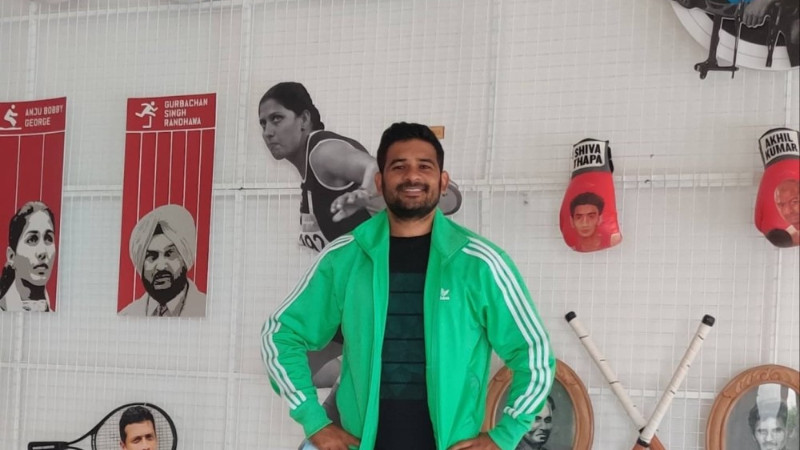
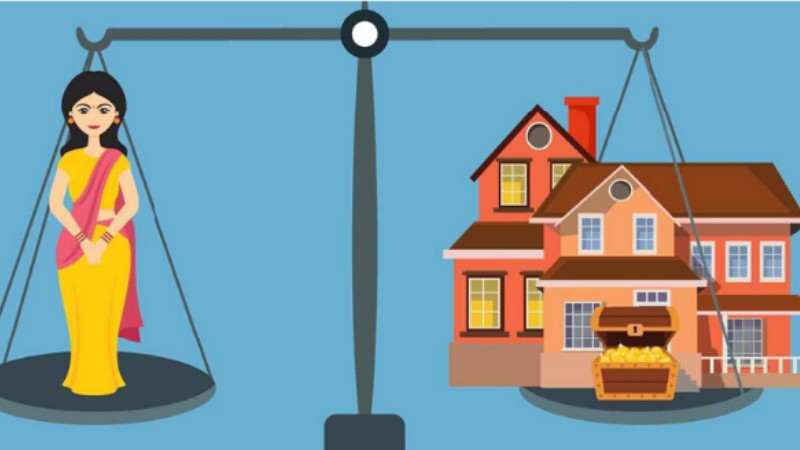
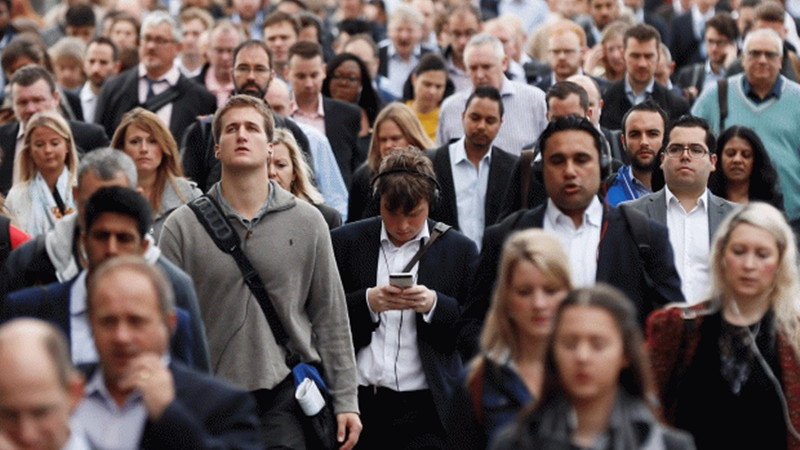
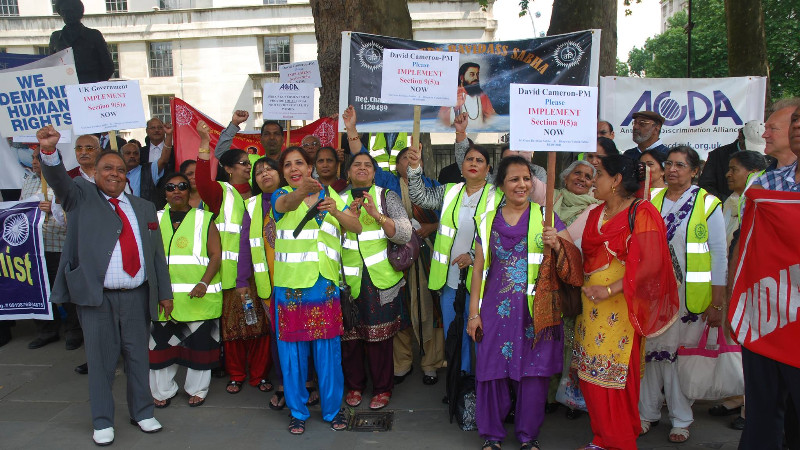
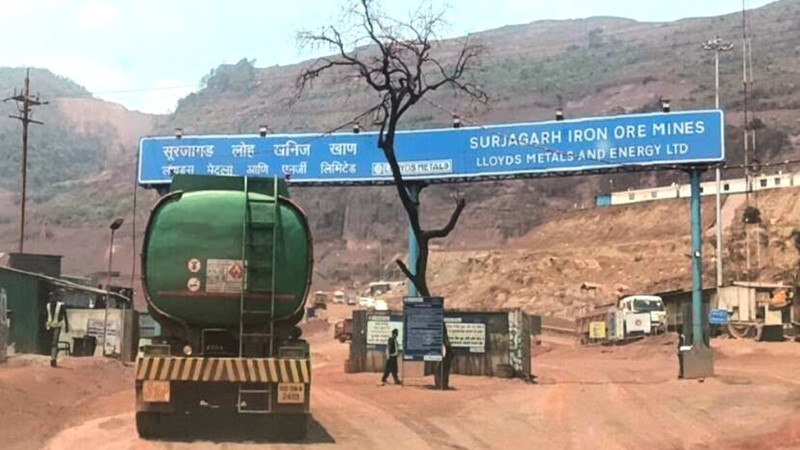
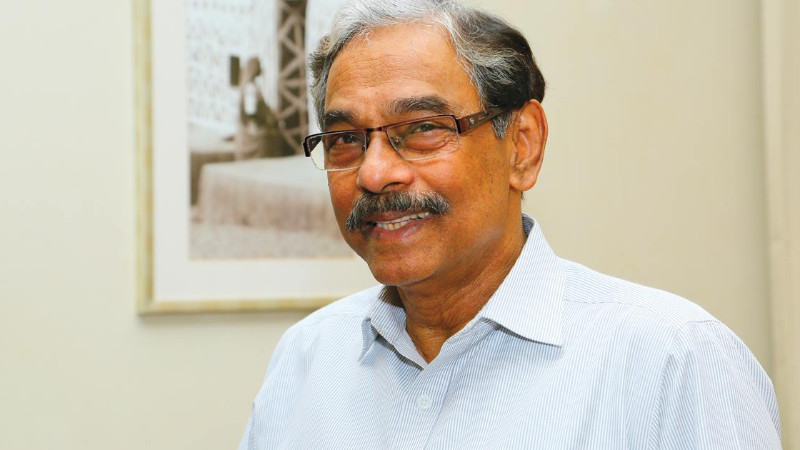
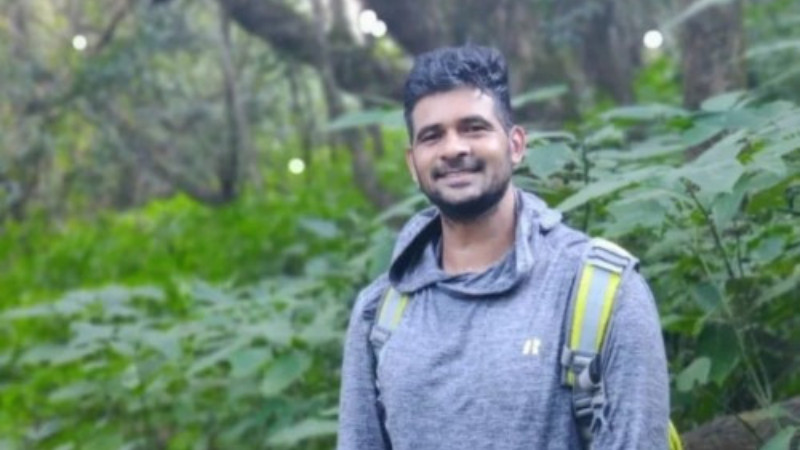

























Add Comment